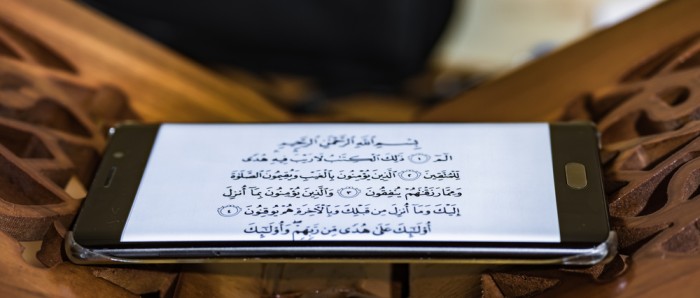What are Five Pillars of Islam?
What are the Five Pillars of Islam?
Islam obligates five basic principles on Muslims. These five basics have been named five pillars of Islam in a hadith of Bukhari & Sahih Muslim books. Every Muslim must endorse and accept these five pillars of Islam by heart. We will be discussing briefs of these pillars here:
1- Shahadah
Shahadah means testimony. Every Muslim must testify the acceptance of only one God, and Prophet Muhammad (PBUH) is the messenger. The words of Shahadah say: "There is no God but Allah, and Muhammad (PBUH) is the Messenger of Allah."
Muslims cannot enter Islam without reciting these words. This is the first of the fundamental pillar of Islam. It is a critical pillar, and that is why it is repeated in five times prayer every day.
Worship is only for Allah
It is vital to accept Allah's existence as only one. Allah is the creator of the heavens and earth. He is the only authority that controls the entire universe. All of the creatures are the servants of Allah, and no one can be called God other than Him.
Prophet Muhammad (PBUH) is the final messenger
The second part is the firm belief in Prophet Muhammad (PBUH). Allah has sent many Prophets to many nations, but Prophet Muhammad (PBUH) is Allah's last Prophet, and there can be no Prophet after Prophet Muhammad (PBUH).
2- Salah
Allah has obligated five times prayer to every Muslim. This was the gift of Allah Almighty to Prophet (PBUH) during the famous incident of mairaaj. The Prophet went to the heavens, met other Prophets, and spoke to Allah himself.
It has been recorded that Allah obligated fifty prayers in a day at first. However, Prophet requested Almighty to reduce the number of prayers until it was reduced to five times prayer.
3- Zakat
Islam obligates annual charity on Muslims. It applies to every Muslim who has savings or possessions to the level mentioned in Islam. The minimum standard has been set in Islam and is known as nisaab. This standard is placed on the prices of silver and gold. The amount of gold is 85 grams, while silver is 595 grams. Whoever has this much silver or gold must pay 2.5% of total wealth in zakat.
Islam believes in equal distribution of money through zakat.
4- Fasting (Sowm)
Fasting is the fourth pillar of Islam. Muslims must observe fast during the entire month of Ramadan of the Islamic calendar. A fast means to refrain yourself from drinking or eating the whole day. A fast starts from the prayer of Fajar and ends with the blessing of Magrib.
Fasting isn't practiced only in Islam. It has been the practice of Christians as well. Christians also observe fasting at specific times of the year like Muslims. The primary purpose of fasting is to teach tolerance. It is also a great way to acknowledge the blessings of Almighty on Muslims.
Ramadan is a month celebrated for good deeds and additional prayers. Allah chains Satan in this month, and Almighty rewards Muslims multiple times on good deeds in Ramadan. Muslims also perform many extra prayers this month.
5- Hajj (Pilgrimage)
The visit to Kaabah and the Hajj in the house of Allah Almighty is the final pillar of Islam. It is a compulsion only on the ones who can afford to visit Kaabah in their life. Muslims desire their entire life to be blessed with this opportunity. Among billions of Muslims on earth, very few millions have the chance to perform Hajj every year.
The preliminary ruling on pilgrimage is the physical and financial capability to travel to Kaabah. This is not a compulsion on everyone. Usually, Muslims save their entire life to afford the visit of Kaabah and perform this sacred duty.
Except for Shahadat & Salah, the rest pillars of Islam might have exceptions. Zakat is applicable when wealth is accumulated at certain levels. Pilgrimage is relevant to financial & physical capability, while fasting can be missed during traveling or sickness. Islam is the religion that accommodates everyone. This is why even the five fundamental pillars have pre-requisites and are not forced on anyone who can't afford to practice them.
How Learning Quran Online is best for Females?

How Learning Quran Online is best for Females?
Quran learning is essential for both males & females. You would not be called a Muslim if you have never learned Quran in your entire life. Muslims must offer five times prayer and they need to know Quran to recite the verses during their prayers. Most of us would still remember the times they used to go to mosques to learn Noorani Qaida and the fundamentals of the Quran.
The idea of stepping out of home for learning the Quran isn’t convenient for many females. That is why females used to learn Quran from their mothers at home. However, online Quran learning has brought so many advantages to everyone. Let us see below how productive online Quran classes for females are:
No Travelling Hassles
Most females need their brother or father to drop them at institutes and then pick them from institutes again. But it is hard for brothers & father to be available every day for this duty. As a result, most females skip going to learning institutes. Some are independent but they don’t have the vehicle to commute to distant learning institutes. Some even can’t find buses going to their Quran institutions.
Online Quran classes make it possible to learn without stepping out of the home.
No Security Concerns
Females may be living in an area that isn’t much secure. Due to such reasons, parents would not allow them to go out of home in the evening. On the way around, the teacher might not be willing to come to teach you due to the risk of being robbed in the midway. These constraints have been limiting females to learning Quran from the professional teachers but this isn’t any problem if you want to learn online.
Best Tutors in Affordable Charges
You could have been lucky in finding a female Quran teacher but still, the charges for the homecoming teacher will be double or even more from the online teachers. You can select one of the finest online Quran tutors at the most convenient prices. This would be a lot of comfortable and economic options to learn from experts.
NO need to find female teachers everywhere
You may have a solution of female Quran teachers in mind. But finding a competent female teacher isn’t an easy job. The chances of hiring the best female teacher are minimal. This is due to the reason that female teachers are quite scarce and they are not available in every locality. You might have to hire a female teacher from far away and she would charge a lot for the traveling expenses.
No Hijab Issues
The most easily available options are to choose from the male Quran teachers. However, learning from males doesn’t matter if you are a younger age. But females might not feel comfortable in their later ages. Some girls do hijab and they would find it hard to learn from males. On the other hand, females feel a lot comfortable with females but they would charge a lot for home-based tutoring services due to higher demands.
Never Miss Classes
Teachers commuting to your place might not be able to maintain a hundred percent attendance. This is not intentional but due to a variety of unavoidable reasons. These can include bike or car malfunction, tire issues, or strikes in the town. A mild sickness can lead to absence because the teacher has to travel miles to reach your destination.
Why Females Should Enroll in Our Online Quran Classes?
- You pay low for the online classes but learn from the best female experts.
- You learn from your comfort zones of homes
- You learn from your won complete secure location
- You don’t have to wait for the teacher because you will be notified online
- You don’t have hijab issues with your teacher as you don’t need to come live
- You and your teacher maintain one hundred percent attendance
- Mild sickness isn’t a problem because you just have to log on to the computer
Females now don’t have to worry about their security for learning the Quran. They can learn from the finest Quran male & female teachers similarly as males do. They can become best reciters just by learning from the drawing rooms of their homes.
Our online platform consists of the best female and male Quran tutors. We are providing a few free classes with the excellent Quran teachers of your choice so that you can only pay when you are fully confident in our teaching style.
What are the five Rewards for Reciting Holy Quran?

What are the five Rewards for Reciting Holy Quran?
Holy Quran is the most sacred book of Muslims. It is the way of life demanded by Allah Almighty. The book guides every sphere of life—the results of good deeds and wrong deeds in Akhirah. We must read Holy Quran and seek guidance from it. Apart from understanding the teachings of the Holy Quran, Allah Almighty has attached limitless rewards on just reading the verses of the Holy Quran. We will be going through the five rewards of reading the Quran here.
Advocate on Judgment Day
Holy Quran rewards its readers on the day of Akhirah. This is one of the greatest rewards of just reading the verses of the Holy Quran. Prophet Muhammad (PBUH) said that the Holy Quran would become our advocate on judgment for the reciters. The words of the Holy Prophet (PBUH) are: “Read the Quran because it will become your arbitrator on the day of Judgment. This hadith has been recorded in Sahih Muslim.
Calmness of Heart
Allah Almighty has placed immense powers in the verses of the Holy Quran. Allah Almighty asks us to read the Holy Quran because it is the only way towards inner calmness. Most of us feel depressed in our daily life. This is because we aren’t reading Quran. We have become so busy in our robotic life that we don’t have any time to recite Holy Quran daily. This leads to stress and psychological problems. The only solution is reciting the Holy Quran because it brings peace to the heart.
A solution to Every Problem
Holy Quran covers every aspect of our life problems. There isn’t an issue that has not been addressed in Holy Quran. From personal life to social obligations and business ethics, we will find complete guidance from Almighty. We are stuck in our lives because we don’t take help from Quran in our daily life issues. We must seek guidance from the Almighty through Holy Quran to solve all our problems.
Direct Communication with Almighty
Have you thought of talking to Almighty? This is possible through reciting Holy Quran. Almighty communicates with us through Holy Quran. So if you want to talk to Allah Almighty, it is possible through Holy Quran. Allah Almighty is a great way to communicate with Almighty and learn about Almighty commands and rulings. It is the biggest source of guidance directly from Allah Almighty.
Ten Rewards for Reciting Each Letter
You can earn numerous rewards by reading a single verse. Allah Almighty has attached ten rewards on reading every letter of the Holy Quran. You can think of numerous counts on rewards on the verses and unlimited on finishing a complete surah. Earning rewards is so easy with reciting Holy Quran.
These ten rewards are multiplied many times on special sacred nights of the year. One such night is a night of Qadr that occurs on the 27th of Ramadan every year. The reward gets multiplied by one thousand times.
Earning rewards is so much easy when you have Holy Quran. We can earn blessings daily by reciting just a single page of the Holy Quran daily.
Conclusion
Holy Quran has immense benefits for Muslims. The Holy Book is the complete source of guidance to lead a successful life and earn rewards on judgment day. The verses are so powerful that it affects the hearts of everyone and cures every disease. There are numerous rewards attached to the only recitation of the Holy Quran. We must recite Quran daily to remain guided towards the right path.
Our online Quran tutoring platform makes it easy to learn Quran by heart. We teach every aspect of the Holy Quran to our students in the most engaging manner. Our online Quran tutoring services are available in learning Quran recitation, understanding tajweed, and Tafseer. All of these online courses can be availed of at any time. You can join a few classes completely free of cost at the beginning of every course.
Let us understand Quran completely and make it our way of life as it is the most authentic source of guidance directly from Allah Almighty.
What are my obligations towards Another Muslim?

What are my obligations towards Another Muslim?
Islam obligates the rights of one Muslim to another. This leads to a sense of care in a Muslim society. Among many of the responsibilities, six are the most vital rights. Prophet Muhammad (PBUH) said, "A Muslim has six rights over another Muslim. When you meet a Muslim, say salaam. When he calls upon you, go to meet him. When he asks you for Goodwill, say good to him. When a Muslim sneeze and says ٱلْحَمْدُ لِلَّٰهِ, say to himيرحمك الله . And when a Muslim gets ill, inquire about his illness. And for the last, when Muslim dies, attend the funeral".
These six obligations will be discussed herein light of the hadith of Sahih Muslims.
Responding to Salaam:
Greeting Muslims with salaam is essential. It is one of the basic ways of creating affection among Muslims. Allah Almighty says in Holy Quran to respond to the greeting of your Muslim brother is a better way or at least in the same way. You can greet back in the same words and choose the better way to greet back your fellow. It means if a person says "اسلام علیکم" to you, then your better answer should be" وعلیکم السلام ورحمۃ اللہ. " It would be acceptable to say again وعلیکم السلام only. However, you would sin if you completely ignored your Muslim brother's greetings.
Visiting the Sick:
The second obligation is to visit the ill one. This highlights Islamic values of taking care of others. This obligation makes sure that an ill person is not left alone. Islam obligates them to visit the patient and pray for their health. This acts as a lot of encouragement for the person in grief. It makes the patient happy that someone cares about the illness. If the patient needs someone to take him to the doctor, the visiting person can be a lot helpful to the one in need.
Attending funeral prayers:
The third obligation is to attend the funnel of Muslim fellows. This is the Muslims right after the death of the fellows. You can think of this obligation as a reminder that everyone has t leave this world at a definite time. You must attend the funeral prayer of your fellow Muslim.
Accepting the invitations:
You are obliged to accept the invitation of your Muslim brothers. The importance of this obligation can be checked in the following hadith mentioned by Ziyad bin Anam Al-Afriqi mentioning the importance of accepting the invitation. Ziyad bin Anam Al-Afriqi said that they were traveling through the boat, and their boat confronted the boat of Hazrat Abu Ayyub Ansari. It was lunchtime, and we invited Hazrat Abu Ayyub to lunch. Hazrat Abu Ayyub said that I have a fast, but still I will accept your invitation because Holy Prophet (PBUH) is obligated to accept the invitation.
Responding to sneeze:
The fifth obligation is to say "یرحمک اللہ" when a Muslim fellow sneezes and says ٱلْحَمْدُ لِلَّٰهِ. This obligation teaches that you should ask for Almighty forgiveness on your fellow behalf. This duty is the basis of brotherhood in Islam. Islam teaches that Muslims should feel each other pain and seek forgiveness for each other from Almighty.
The feeling of Goodwill:
Islam obligates the feeling of Goodwill for each other. It is the duty of every Muslim not to misguide his fellow. Muslims should not be involved in flattery or hypocrisy towards others. They are also obliged not to give any bad advice to fellows. On the other hand, Muslims also should not gossip on the backs of their fellow brothers. Good dealing and Goodwill is required from everyone even if their fellows cannot hear them.
Final Conclusions:
Islam is no doubt a religion of harmony and peace. It formulates principles that bind Muslims together. The above rights ensure that Muslims share each other's pain and are present when their fellow Muslims are grieving. Our religion promotes a society-based culture where everyone feels the pain of others. Fulfilling these rights ensures that you have a strong bonding with your fellow Muslim brothers.
Teaching Students with Different Learning Styles

Teaching Students with Different Learning Styles
Every student is talented in a different way. Students have different learning styles too. A student struggling with a certain learning style might excel with another one. The tutors must be vigilant to track the learning style of every student. The teachers must be able to identify the learning styles of students.
Of course, this can’t happen in a class of twenty or thirty students. A single teacher does not have time to look closely at the struggles of every student in their class. This is the major reason many talented students are left way behind in academics just because the teacher doesn’t understand their learning styles.
In the case of tutoring like that provided on our platform, students are taught through one-to-one interactive sessions.
Let’s discuss three different styles of learners and how to identify them:
Visual Learner Students
These learners rely on a visual learning style of communication. They would like to see every bit of information their selves.
It is the only way they can understand things. You can identify these students saying phrases like, would you show this to me, or can I see it myself?. These students need visual examinations to develop clear concepts of the course material.
Visual learners may be a bit slower in grasping concepts. Teachers might find these students a bit distracted in classes. This is due to the reasons that they need to visualize concepts before actually understanding them well.
You can help visual learners with their struggles in many ways. Some useful ways are:
- Teach students through graphical representations, diagrams, videos, photographs, and handouts, etc
- Highlight main points of course content for them so they can emphasize more on such lines
- Present course text in different sizes and styles so that students remain engaged in lessons
- It would be best if you avoided longer paragraphs of texts without any diagrams or photographs
- It would be best if you did not teach them at a faster pace as they need to visualize concepts
Auditory Learner Students
These learners depend more on vocals. They won’t grasp any material that can only be read or seen by the eyes. If you have course content well explained through photographs and diagrams, it won’t do any good to auditory learners. These learners can remember seventy percent of the course material if they hear it.
You can identify auditory learners when they say, “can you explain it to me?” tell me more about it, or can we talk more about these concepts.
Auditory learners are a lot more focused than visual ones. They can hear and process information for long periods without a single distraction. However, be ready to answer a lot of questions. Auditory learners will question a lot to understand everything about the information.
You can help these learners in many ways. Some of these are:
- Teach students in a noise-free environment and without distractions
- It would be best if you read the lessons to them instead of asking them to read by themselves
- You should engage with them by asking lot of questions
- Try making rhythms for words in the lessons
- Ask them to record their voices when they read lessons and hear these lectures
Kinesthetic Learner Students
These learners are the practical ones. They would ask to learn by practicing themselves. They need practice experience to learn things. Tutors would have to deliver the practical versions of very lessons they would be teaching to these students. You might try to teach them through many visual or auditory tools, but they would ask you the same thing; can I try it myself?
They rely on doing tasks practically to learn the different concepts. You can identify kinesthetic learners easily. They are often found tapping their feet or fidgeting while learning new concepts.
Ways you can support kinesthetic learners include:
- It would be best to encourage them to take their notes instead of reading & listening.
- You must be given frequent breaks to them so they can relax themselves
- You should use concrete items to teach them different concepts
Our tutors identify the specific learning style of the student in the first teaching sessions. We design our courses with the pace and learning styles of students. Our specifically tailored course material helps every student to understand every aspect of the tough subjects.
How Can I Recite Quran Beautifully?

How Can I Recite Quran Beautifully?
Holy Quran is the conversation of Allah Almighty. The holy book is perfect in all dimensions. Reciting it beautifully is the Sunnah of Holy Prophet Muhammad (PBUH).
Below are crucial tips to recite the Holy Book in the most beautiful manners:
1- Learn Tajweed Basics
Quran recitation isn’t perfect without Tajweed. Tajweed is a set of linguistic rules that are required for the right pronunciation of words of the Quran. Some of the tajweed basics are discussed hereunder:
i) Learn Pronunciation Basics
Practice the sounds of commonly used Arabic words in Quran and then proceed to practice the correct pronunciation of complete verses. You can get help from listening to recitations of these words and verses from renowned reciters of the Quran. You will notice that they stretch sounds of some words while shortening sounds for others. They are following Tajweed rules in pronunciation and you can start copying their sounds to have an understanding of correct pronunciations.
ii) Learn Intonation Basics
The stretch in sounds of certain words while cutting the sounds of others are intonations. Sometimes reciting loud is essential for certain verses and reciting them on lower levels will completely alter their meanings. Intonation rules deal with your voice notes while reciting the Holy Quran. Intonation is a compulsory part of Tajweed and reciting Quran without it would alter or break the meanings of Allah’s commands.
iii) Learn Articulation Basics
Articulation is another part of Tajweed rules. It deals with producing sounds of letters in a word. It guides to silent the first letters and sounds the last or middle ones and vice versa. You need to know how you are going to sound every letter of each word in the right way. The basic understanding of these articulation rules is essential to develop the continuity of verses or break them apart as per these rules.
iv) Learn When to Pause
As soon as you follow the above articulation & intonation rules, your Tajweed will be incorrect form. You can take the example of expert reciters who make up a rhythm with verses following all sets of tajweed rules. You can assess their recitation on Tajweed rules for a practical understanding of these rules.
v ) Learn from Expert Reciters
When you are all good with basics, you can start to recite in rhythms. However, you must keep track of Tajweed rules to develop these rhythms. You may make a fault going through verses while rhythmically reciting them. This is where you can get expert Quran tutors to help to supervise your developed rhythms in verses. Online Quran tutoring services are just a single click away from our platform. Our expert Quran tutors will carry out one-to-one tutoring sessions as per your schedule to listen and rectify your recitation mistakes. You can also listen to the recitation of our expert Quran reciters in our one-to-one online tutoring lessons.
2- Understanding Quran
You must try to understand the recitation of the Quran. You can opt for online Tafseer lessons to get a deep understanding of what is being told in the verses of the Holy Quran.
Arabic language would seem a bit problematic to learn on your own. But getting hands-on the basics is never too difficult. You can start with these steps if you need to learn the Quranic Arabic on your own.
i) Learn Arabic Basics
Try learning Arabic grammar online. Take Arabic grammar quizzes and try producing sentences in Arabic. As soon as you can develop some small sentences, you can head to exten41sive ones and so on.
ii) Translate Arabic to Mother's tongue
Translating Arabic to your language is another productive learning approach. Try converting every verse into your language and observe the basic translation of some commonly used Arabic words in sentences. In this way, you would get a hint whenever the same word is used in another verse.
iii) Learn Quranic Vocabulary
Quran vocabulary is the most perfect combination of words. These words aren’t used locally as these are the words of Allah Almighty. You can make up the list of Quran vocabulary and focus on their meanings.
iv) Listen to Famous Quran Reciters
We all have some favorite Quran reciters. You can choose your favorite reciters like Sheikh Basit or Sheikh Saad Al Ghamidi for your auditorial learning purposes. You can start with listening to certain verses of the Quran from them and then repeating them in similar patterns. It is an easier way to learn and grasp the Tajweed rules than to go for grammatical learning methods.
v) Practice Quran Recitation Daily
Since Arabic is not the first language of many of us, we may lose the track of Tajweed rules after learning them at in later time. You should make a habit of reciting a small portion of the Holy Quran every day to keep your Tajweed rules refreshed. It’s not essential to finish a chapter every day but you can recite a few verses every day as per Tajweed rules to keep them refreshed in your mind.
3- Repetition & Regularity
Repetition & regularity are keys to fastening up the learning process. You shall make the recitation a constant practice or link the recitation with some daily life tasks in learning Quran more efficiently and quickly as possible.
i) Recite Verses in Prayers
Recite the verses in five times prayers. You can also make a habit of reciting a few Surah after prayers to make Quran learning a regular habit. It is also a blessing to recite Quran in wudhu. You will be already in wudhu for five times prayers and these are the best times to recite Quran being in wudhu to add up Allah’s blessings.
ii) Set Tajweed Learning Targets
You can set Tajweed learning targets quarterly or for every weekend on your availability. You can target intonations, articulations, and so on. You should practice every rule with some tasks at the end to make a more firm understanding of these principles.
iii) Teach Recitation to Family & Friends
If you are privileged to have learned reciting Quran in the right way, you can teach these basics to others. Indeed, teaching Quran is the noblest deed in our Deen. Prophet Muhammad (PBUH) said as narrated in Al-Bukhari that ‘the best among you are the ones who learn and teach Quran’.
You can recite the Holy Quran in the most beautiful manners by following the above basics. The words of Allah Almighty need to be uttered in the correct ways and this is only possible through correct recitation principles.







